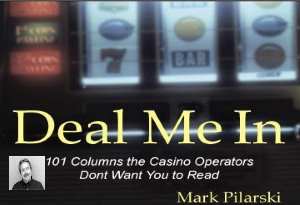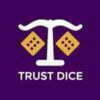I am a graduate student working on my Masters degree in Abnormal Psychology. My thesis is on Compulsive/Problem Gamblers. Any information on the extent of the problem, trends, profiles and treatment of problem gambling would be greatly appreciated. Jane B.
I questioned myself, Jane, if your inquiry was appropriate for this type of column-unequivocally YES!
Extent of the Problem: The magnitude of problem gambling ceaselessly draws heated debate. Groups like the National Coalition against Legalized Gambling believe the wrath of gambling leads to the gates of prison, insanity or death. The casino industry disputes any figure and gives problem gambling limited lip service. Setting biased opinions aside, a good frame of reference is the number of studies showing that anywhere from 5-10 million people in the United States (2% of the population) can be considered compulsive gamblers, with an additional 3% problem gamblers. Research also indicates that as many as 7% of teenagers could be addicted to gambling.
Trends: As gambling proliferates across America-legal in 27 states by 1998-one frightening trend always, repeat always, appears. Saturate any area with gambling and the prevalence of problem gambling spirals upward. I am personally inclined to believe that problem gambling will continue to accelerate north for two reasons.
1. Social attitudes toward gambling have changed from negative to positive.
2. Church and state got into the gambling business. Be it church bingo, Las Vegas Nights, the lottery or casino gambling, both institutions not only legitimized gambling but depend on these legalized activities as a way of generating revenues.
Profile: Until the mid-1970s, your typical compulsive gambler was a white, middle-aged man. Today’s profile according to the Council of Compulsive Gambling of New Jersey crosses all ages, races, religious persuasions, socioeconomic levels and educational lines. Below is their snapshot of your typical compulsive gambler.
Nine out of 10 problem gamblers are men.
91% of problem gamblers who paid off their gambling losses continue to gamble.
17% attempt suicide.
96% began gambling before the age of 14.
Three out of 4 compulsive gamblers commit felonies because of gambling.
Treatment: What works? Gamblers Anonymous. Gamblers Anonymous offers the following questions as self evaluation. These questions are provided to help the individual decide if he or she is a compulsive gambler and wants to stop gambling. Most compulsive gamblers will answer yes to at least seven of these questions.
1. Did you every lose time from work or school due to gambling?
2. Has gambling ever made your home life unhappy?
3. Did gambling affect your reputation?
4. Have you ever felt remorse after gambling?
5. Did you ever gamble to get money with which to pay debts or otherwise solve financial difficulties?
6. Did gambling cause a decrease in your ambition or efficiency?
7. After losing did you feel you must return as soon as possible and win back your losses?
8. After a win did you have a strong urge to return and win more?
9. Did you often gamble until your last dollar was gone?
10. Did you ever borrow to finance your gambling?
11. Have you ever sold anything to finance gambling?
12. Were you reluctant to use “gambling money” for normal expenditures?
13. Did gambling make you careless of the welfare of your family?
14. Did you ever gamble longer than you had planned?
15. Have you ever gambled to escape worry or trouble?
16. Have you ever committed, or considered committing, an illegal act to finance gambling?
17. Did gambling cause you to have difficulty in sleeping?
18. Do arguments, disappointments or frustrations create within you an urge to gamble?
19. Did you ever have an urge to celebrate any good fortune by a few hours of gambling?
20. Have you ever considered self destruction as a result of your gambling?
For my loyal readers: Bet with your head, not over it. If you or someone you care about has a gambling problem and wants help, call GAMBLERS ANONYMOUS.
GAMBLERS ANONYMOUS is a fellowship of men and women who share their experience, strength and hope with each other so they may solve their common problem and help others recover from a gambling addiction. The only requirement for membership is a desire to stop gambling. For further information write or call:
Gamblers Anonymous
International Service Office
P.O. Box 17173
Los Angeles, CA 90017
(213) 386-8789
(213) 386-0030 fax
http://www.gamblersanonymous.org
[email protected]




















